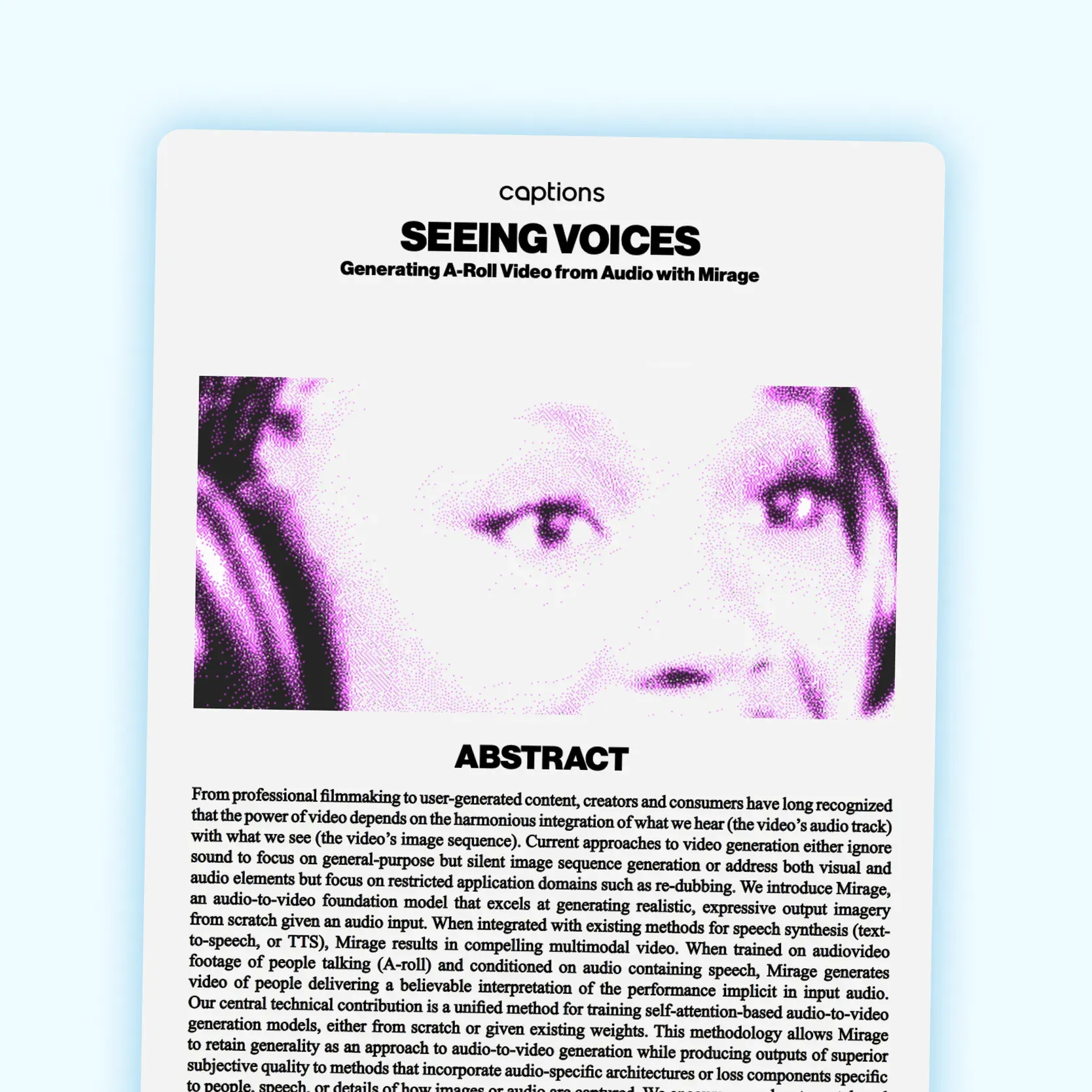Pioneering the future of
content creation
We're building end-to-end foundation models that let anyone go from idea to audience in minutes. Our models understand pacing, framing, and attention dynamics natively, all the way from script to audio-video.
Our research spans real-world generative modeling, multimodal reasoning, dataset design and collection, audio-video quality evaluation, and large-scale training and inference. If you want to push the frontier of video, audio, and engagement for content that real audiences watch and follow, this is the place.
Research principles
End-to-end rapid iteration
We build models together with the products they power. We ship very quickly, with many features and improvements going out the day we build them, and we don't stop improving when things ship. Mirage's iteration cycle lets us quickly optimize against real user signals at scale.
Multimodal models
Video is inherently multimodal. Making a good video requires a creator to nail everything: the nuances of the script, the timing and cadence of their vocal delivery and visual performance, and the composition and editing of their video. Our foundation models treat audio, video, and text on equal footing, learning phrasing, pacing, pose, micro-expressions, and framing directly from data. The result is harmonized and controllable content that delivers audiovisual performances with the right message and emotion.
Data-first system design
Data is at the heart of every good model. Our models are built on a curated, licensed dataset of the highest-quality audio-video data. At Mirage, we design and evaluate our dataset with close attention to rights, safety, and brand control. Our metadata, data infrastructure, and training protocols are built to reflect everything needed to make compelling content, including appearance, shot styles, delivery techniques, emotion and expression, and scene structure.
Frontier training and inference
At Mirage, training and inference is done in-house to let us move our models and products as fast as the frontier in AI research. We're training the next generation of large-scale multimodal models where inference speed and model capabilities matter in equal measure. We're pushing on efficient, scalable serving to deliver quality, speed, and affordability.
Read our latest research
Learn more about the research behind Mirage's models and products in our latest technical blog posts and publications.



